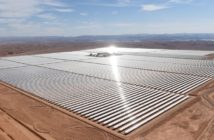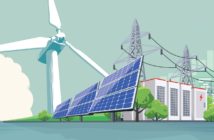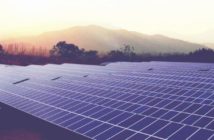Written by Chris Meehan

Morocco currently imports 90 percent of its energy but that’s about to make a drastic dive as the Mediterranean nation starts an ambitious plan to build out 6 gigawatts of renewable energy by 2020. The country will pursue a variety of technologies, including wind, solar, biomass, hydro and other technologies. And its efforts are already underway. Morocco will soon name the winner of a 160 megawatt concentrated solar power project.
The 160 megawatt project is part of the larger, 500 megawatt CSPOuarzazate site. “ It’s the first step,” said Saïd Mouline, director of Morocco’s Agency of Development for Renewable Energies and Energy Efficiency (ADEREE). “When the winner is known there will be a power purchase agreement with MASEN [i.e., Moroccan Agency for Solar Energy].”
“We have a strong proactive policy at the highest level of the state.” That includes plans to build out a full 2 gigawatts of solar power over the next 8 years. “The solar can be all solar technologies,” Mouline said. That’s partly because of the country’s resources. “Some sites are more CSP-oriented, some others are PV oriented,” he said.
In addition to solar, the country also will install 2 gigawatts of wind. That effort’s already underway, according to Mouline. He said the country already has 300 megawatts of wind turbines installed. The country also will rely on hydro power for more of its renewable portfolio.
“We are strongly believing in this because most of our energy is coming from Europe today,” Mouline said. For instance, Morocco now gets a lot of its electricity from Spain via transmission lines. “All this is to decrease our energy dependence.”
For now the country is focussed on meeting its own needs. “All the power plants were on the coast line, because we used to import coal. With renewables we are inside the country,” Mouline said. With some of the resources in more remote locations that will bring jobs to those regions. It’s one of the main reasons the country opted to take the slightly more expensive route of not building coal plants, he said.
The country also is interested in exporting renewable energy and is in talks with Europe to feed power back across the power lines, according to Mouline. The country also created policy that allows people to develop projects to export electricity.
.






